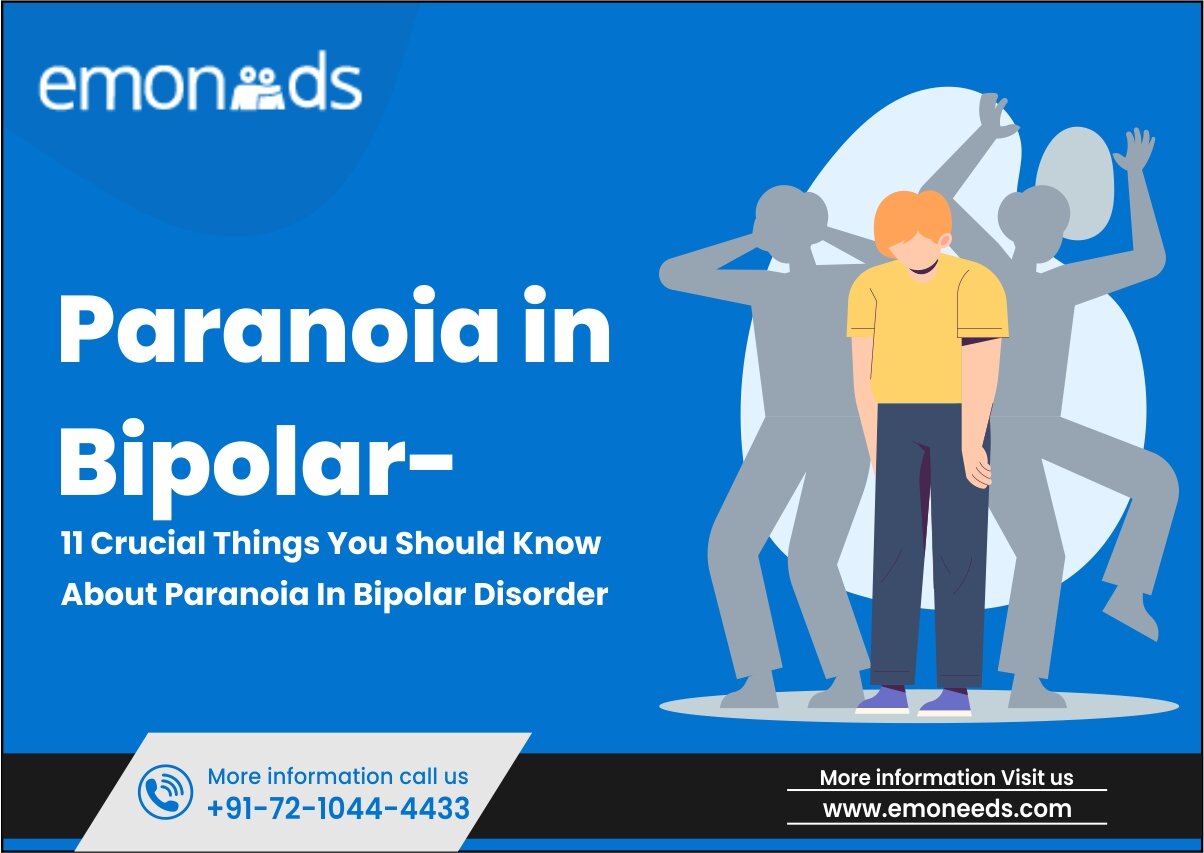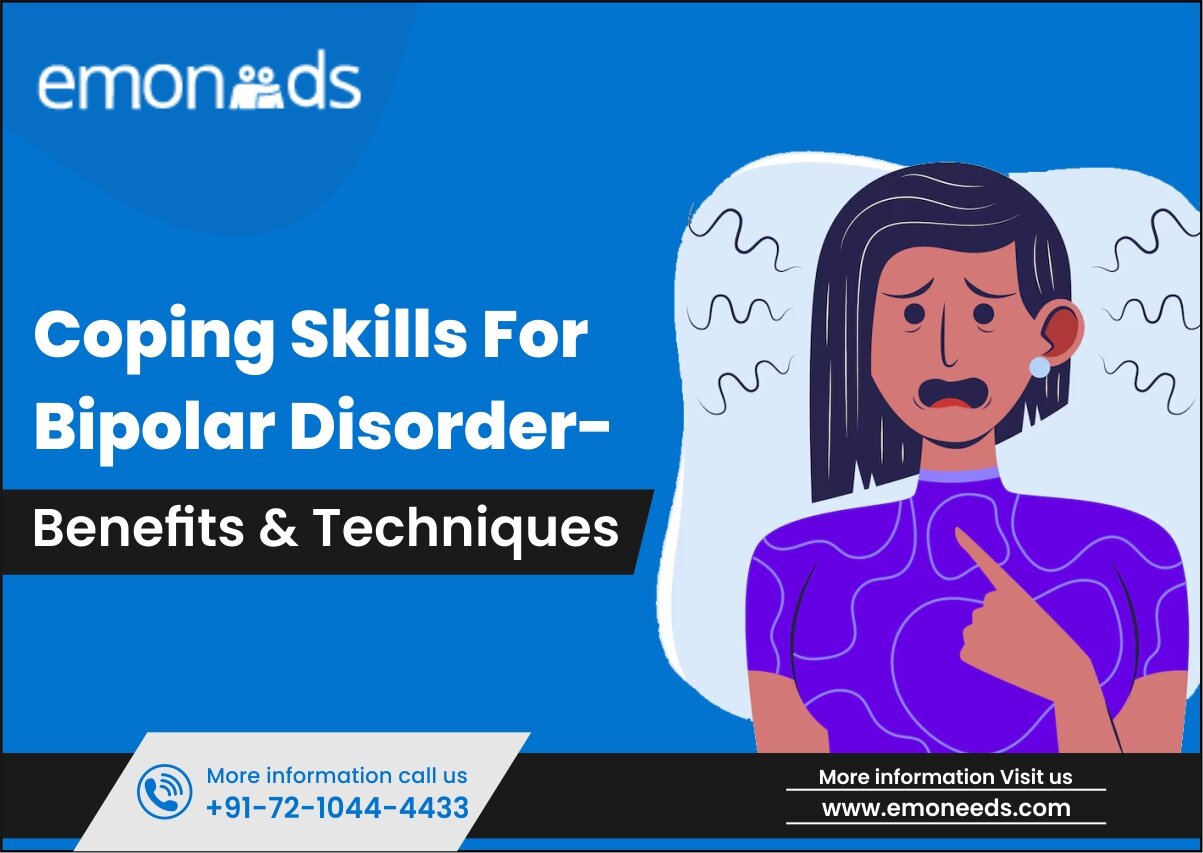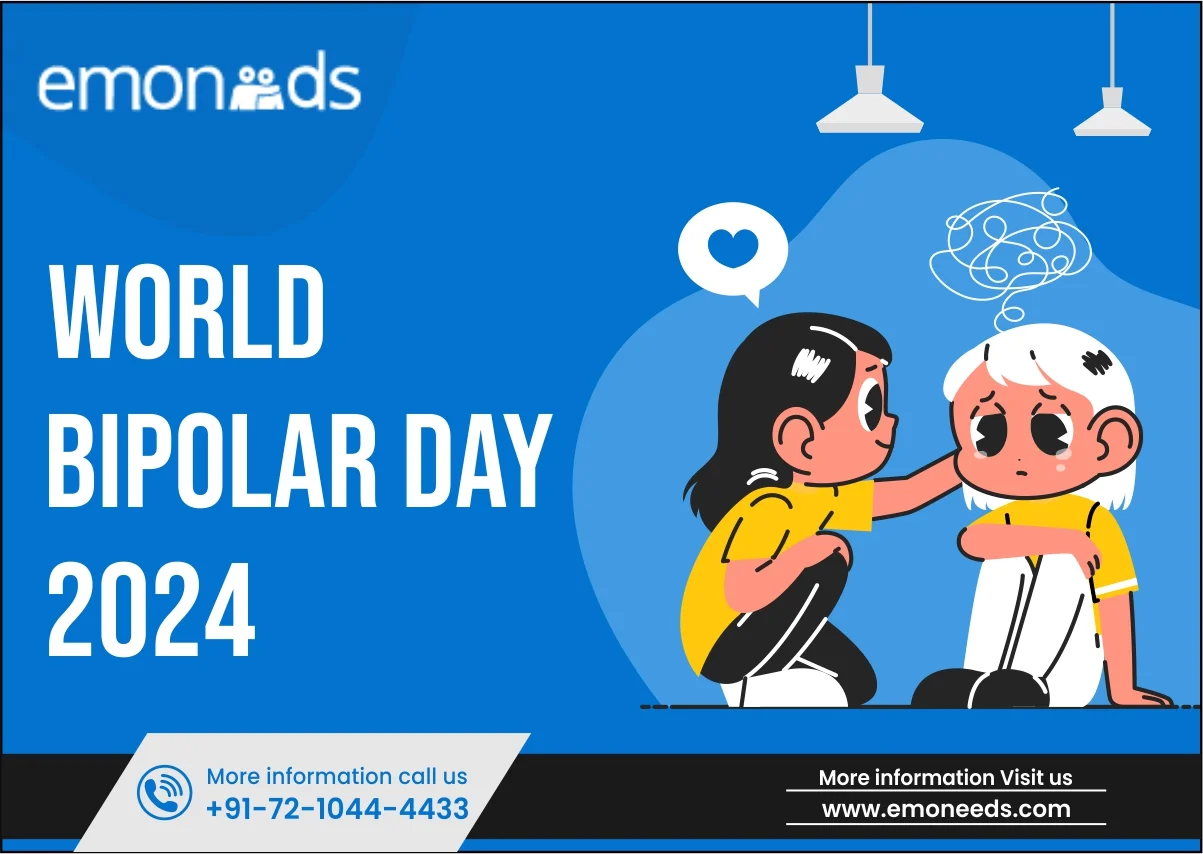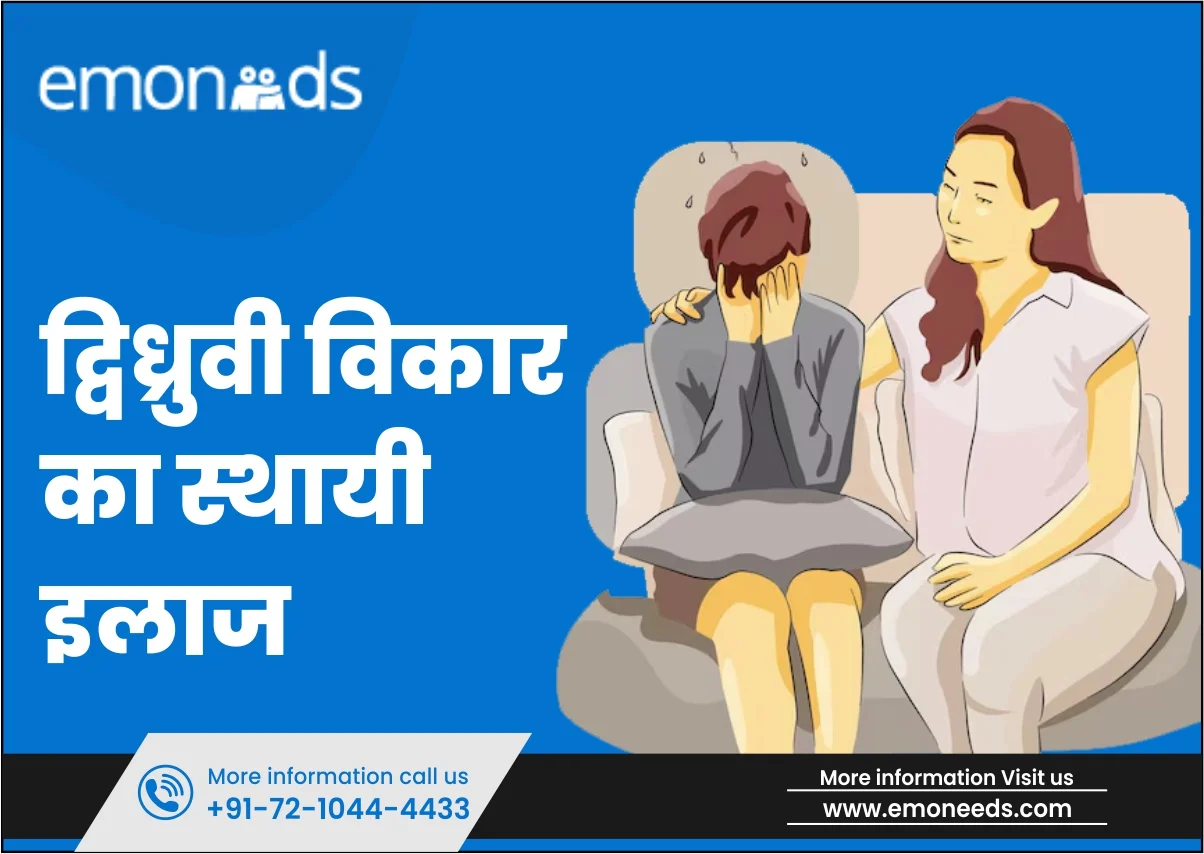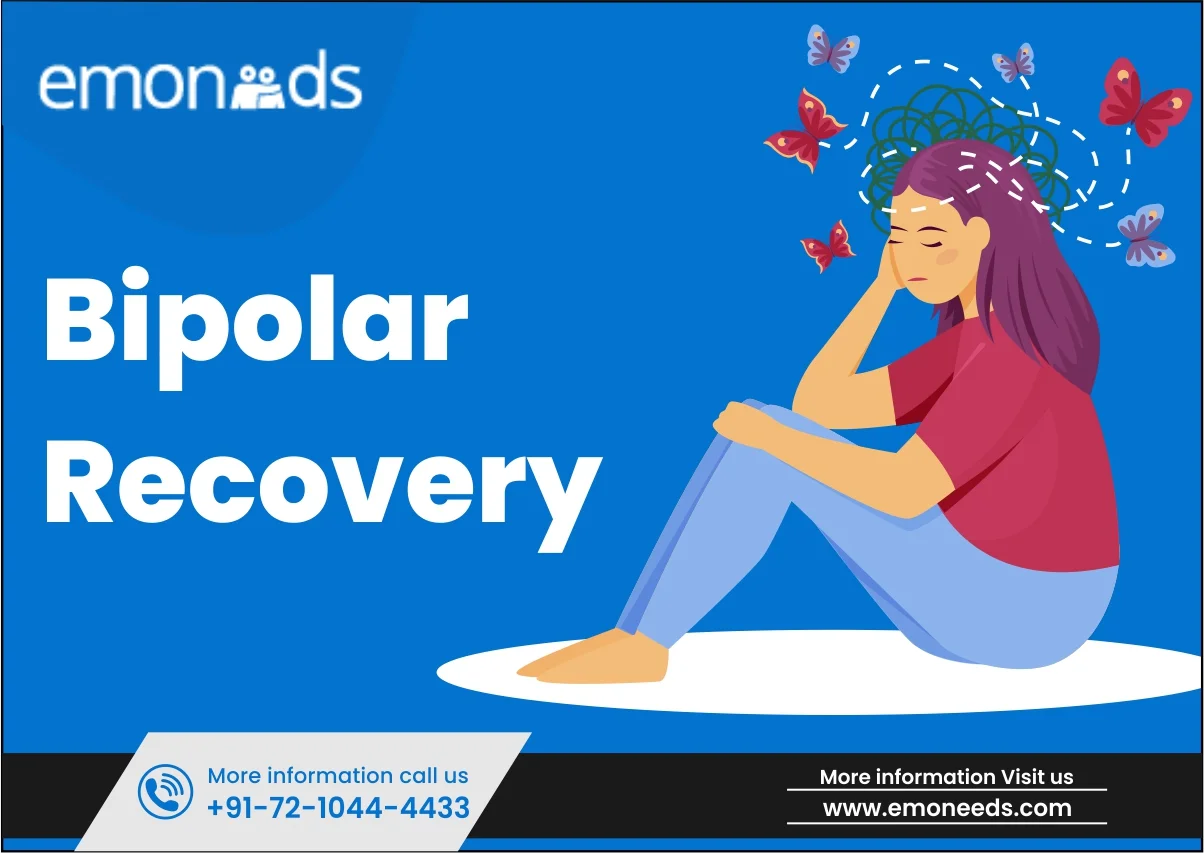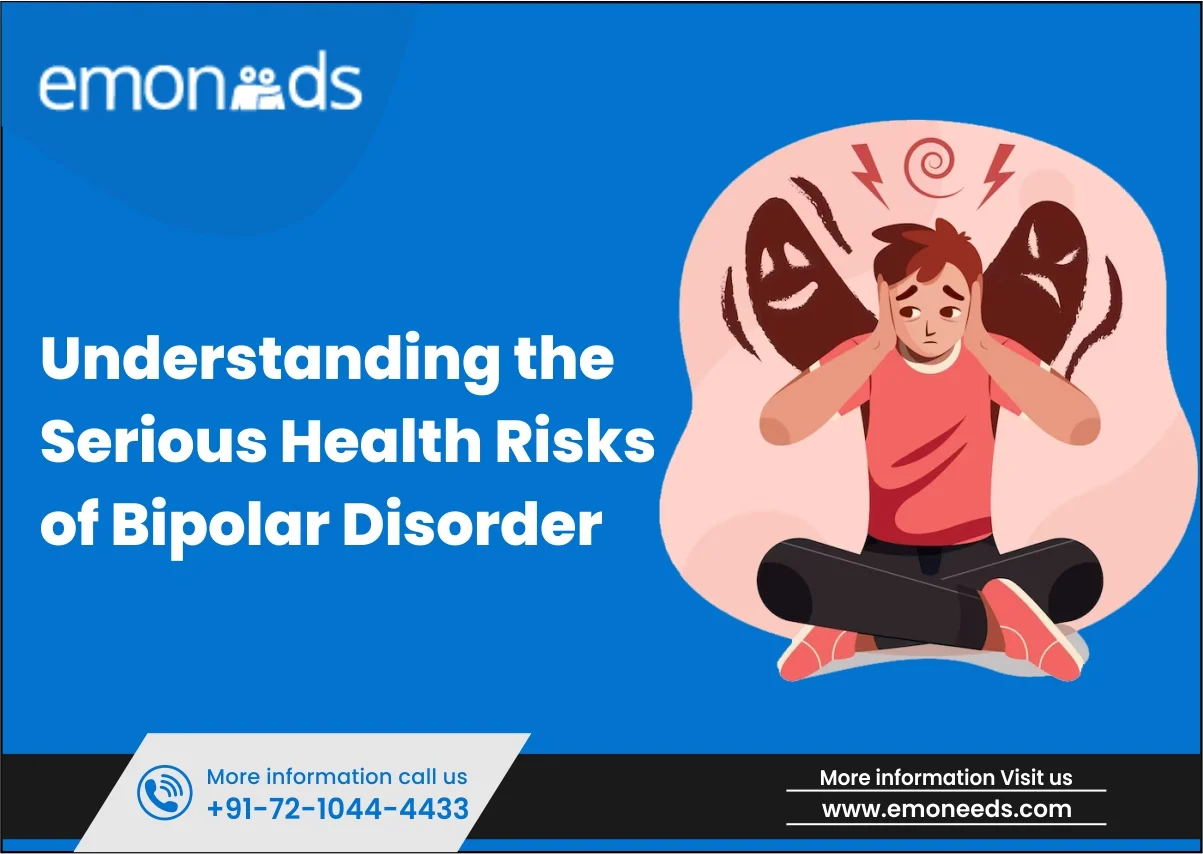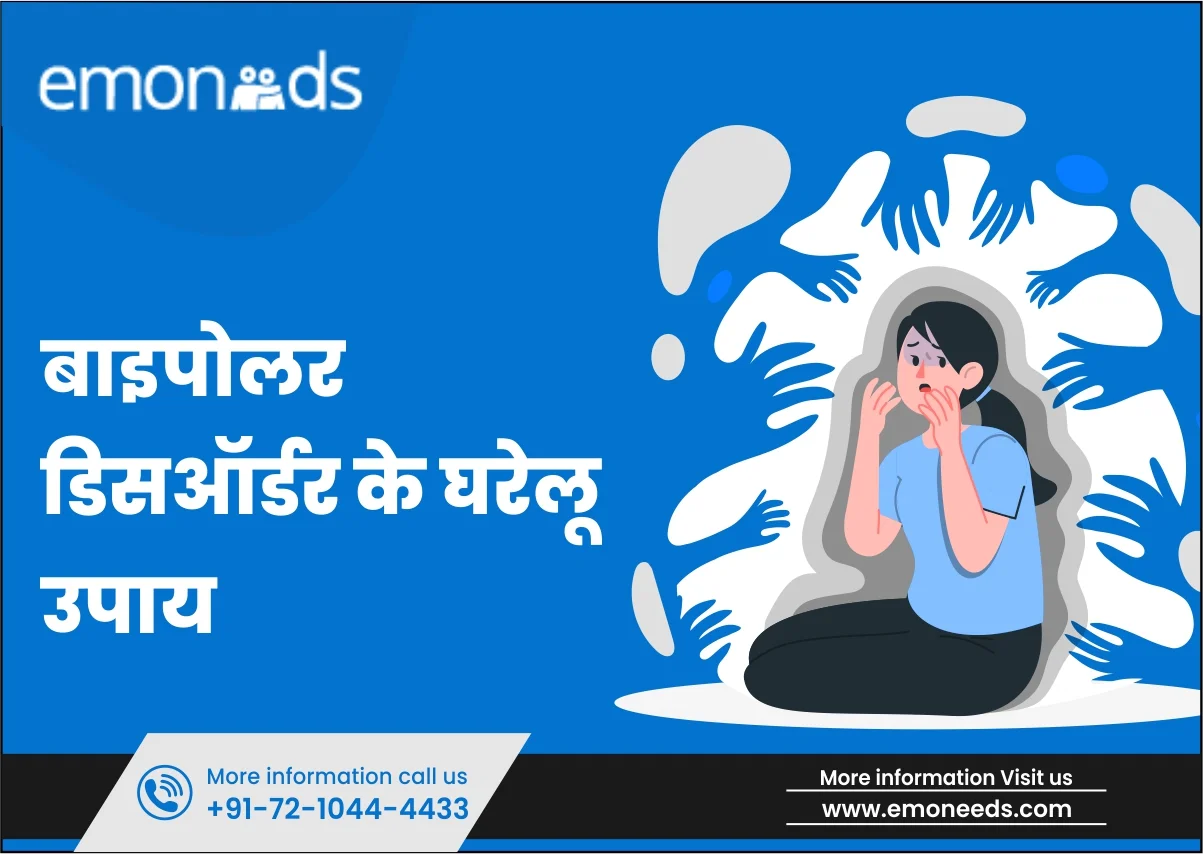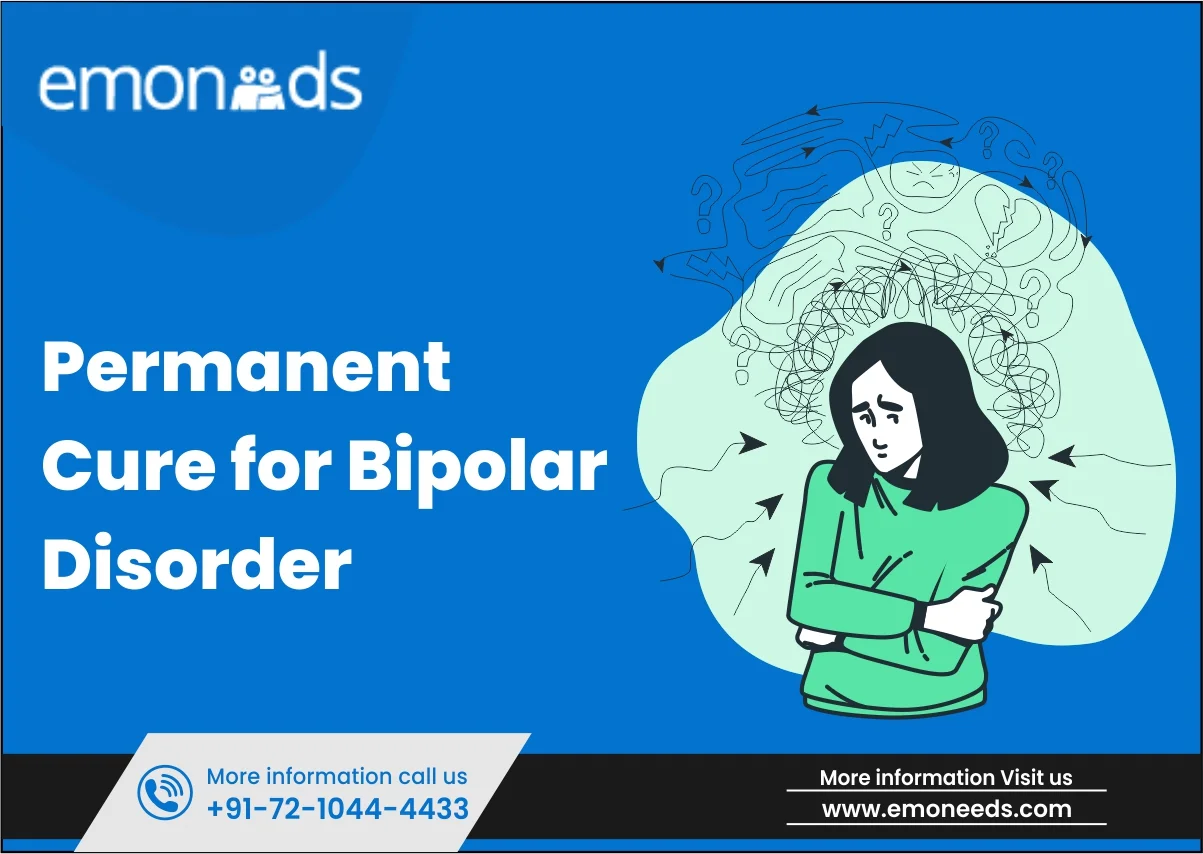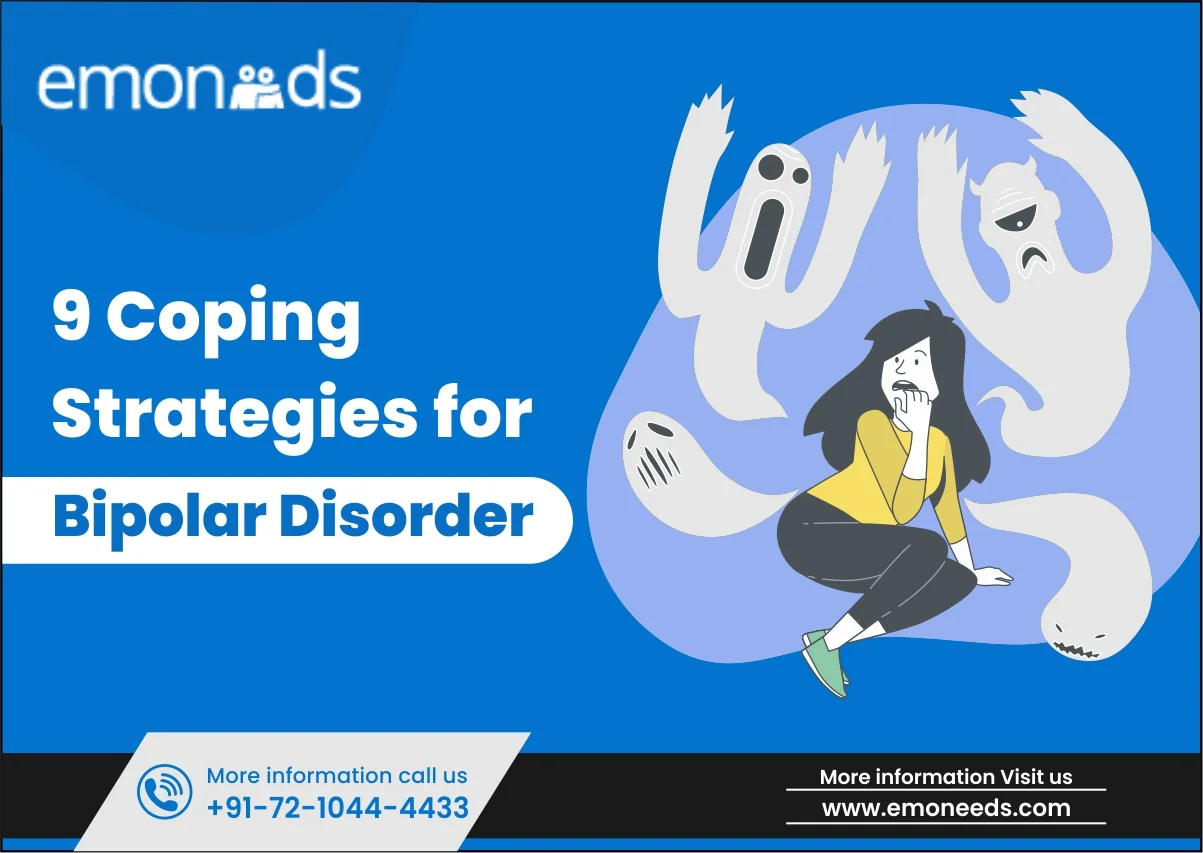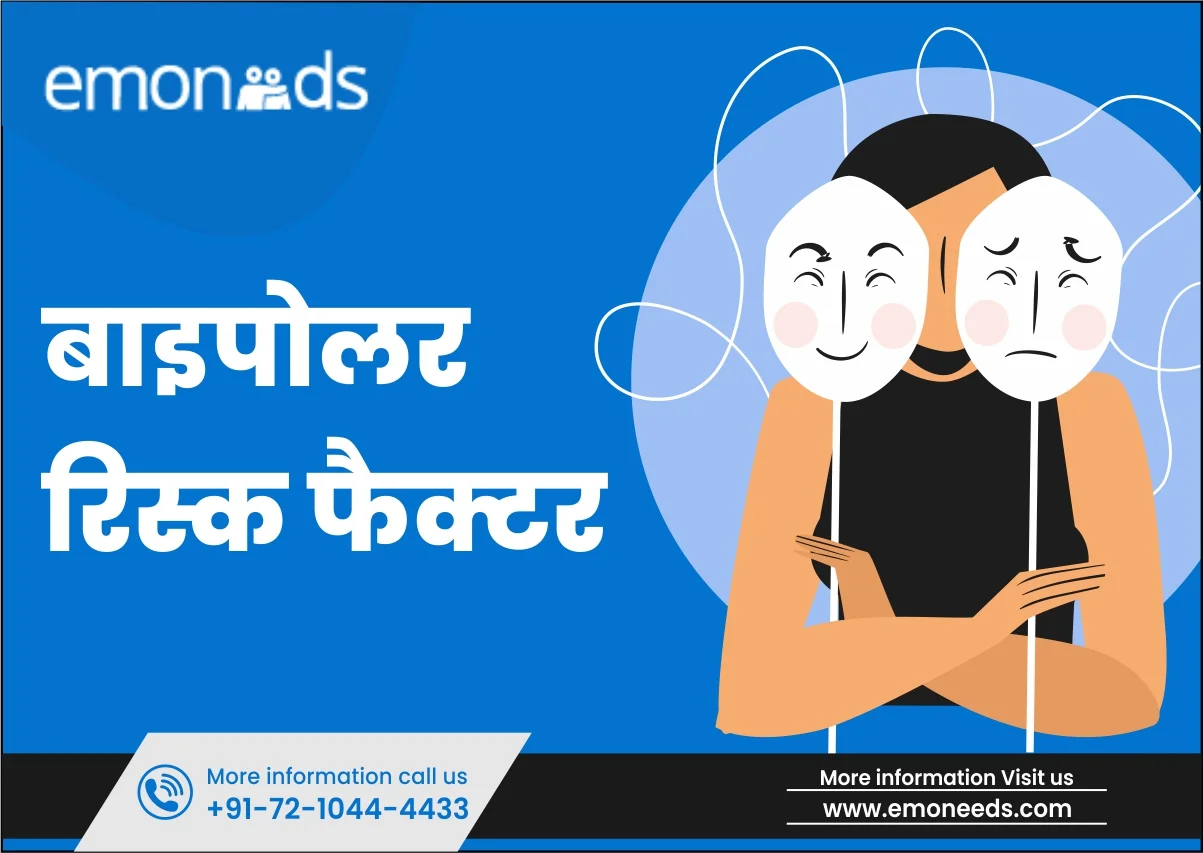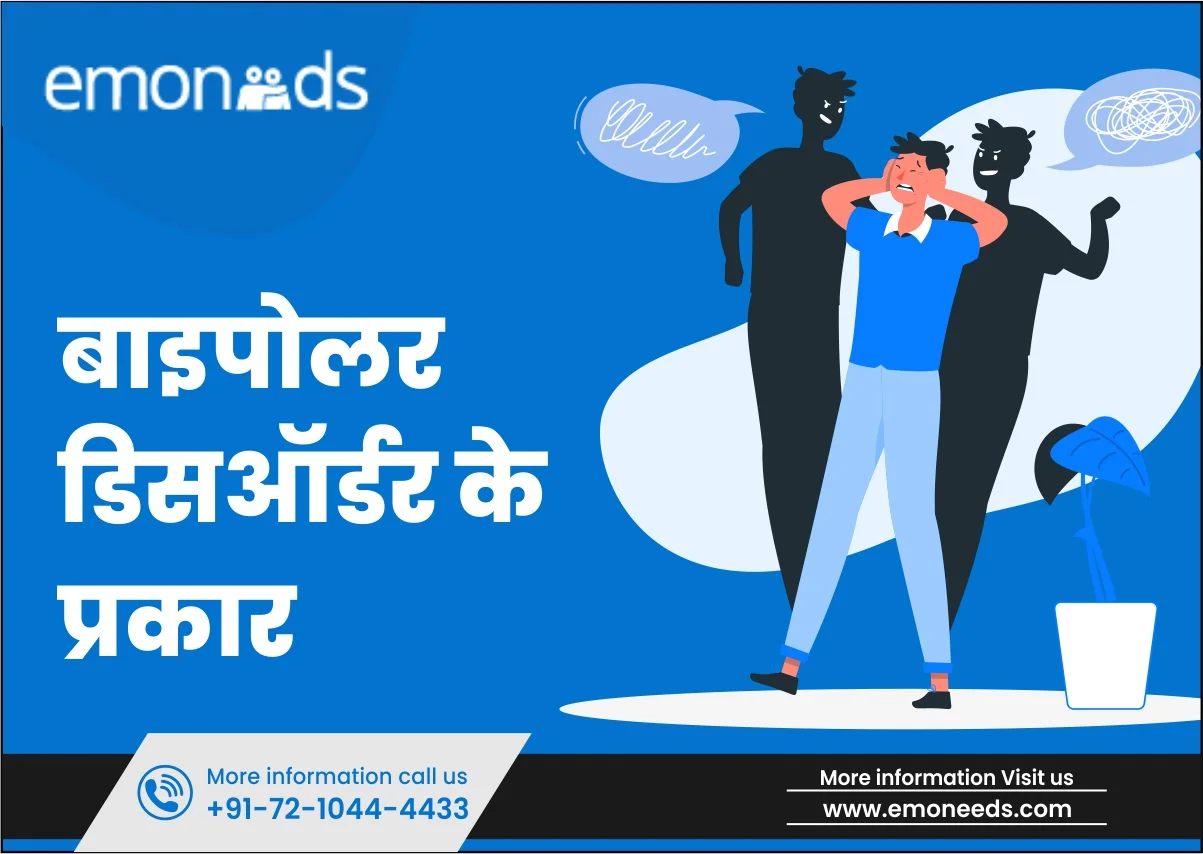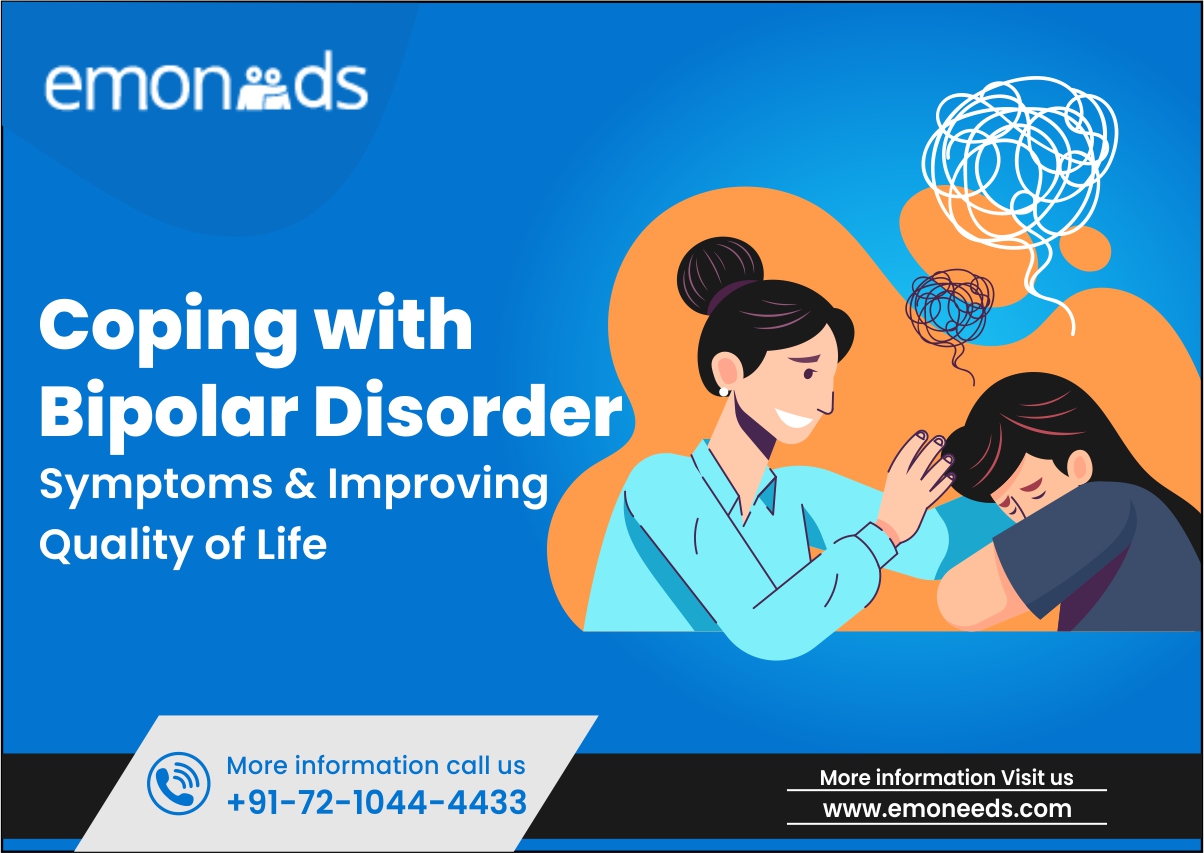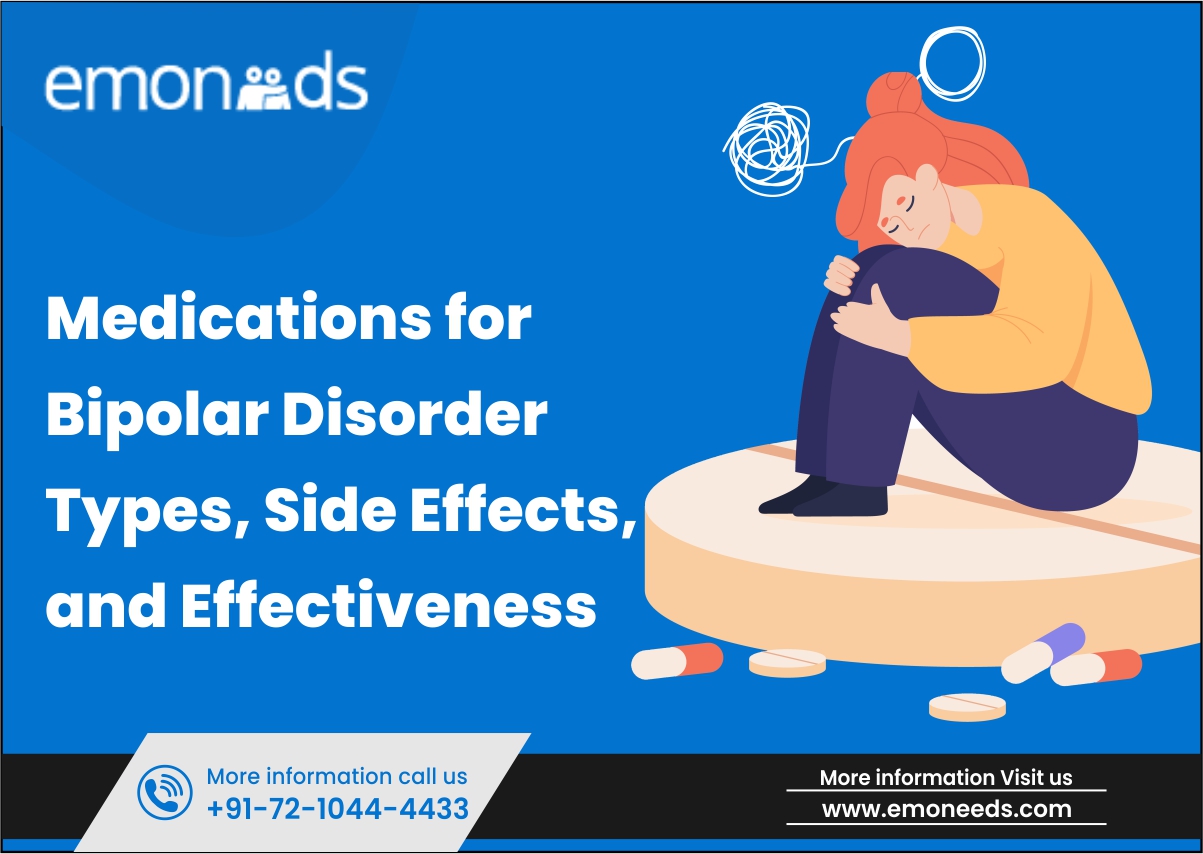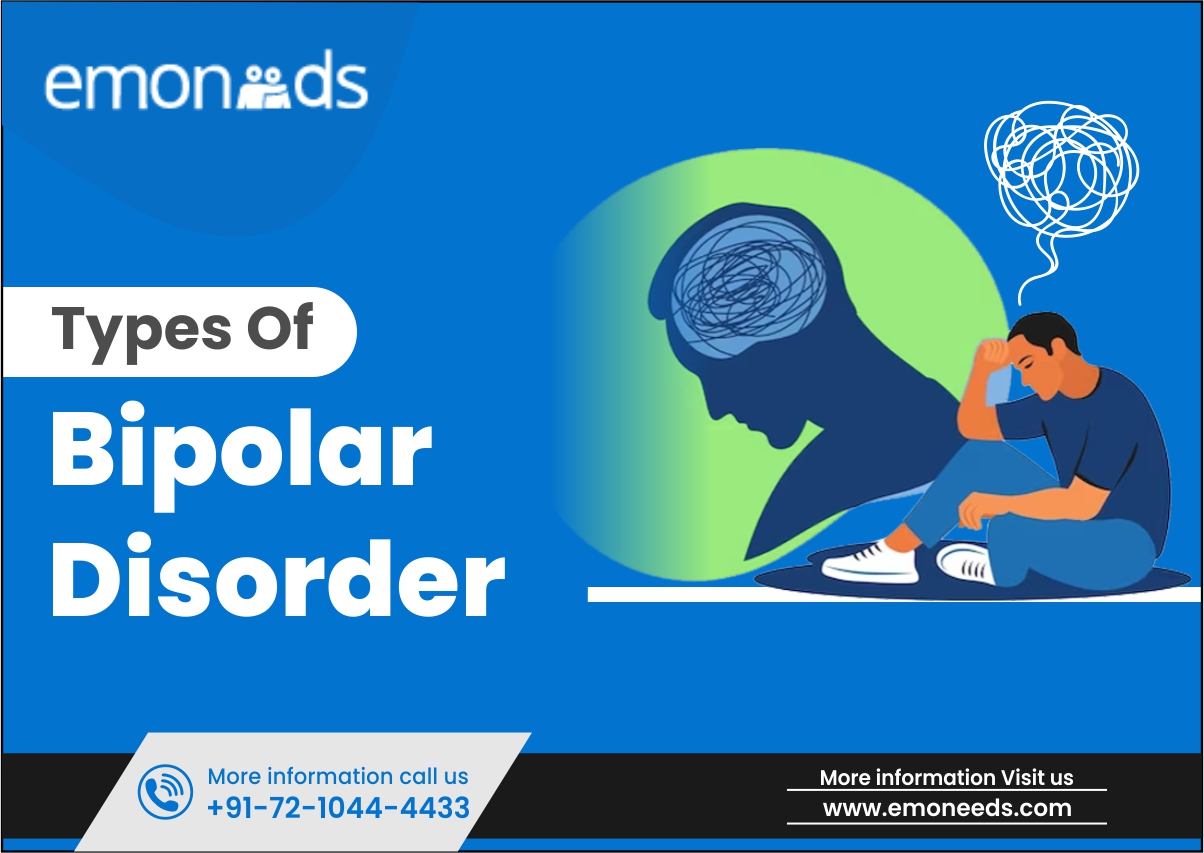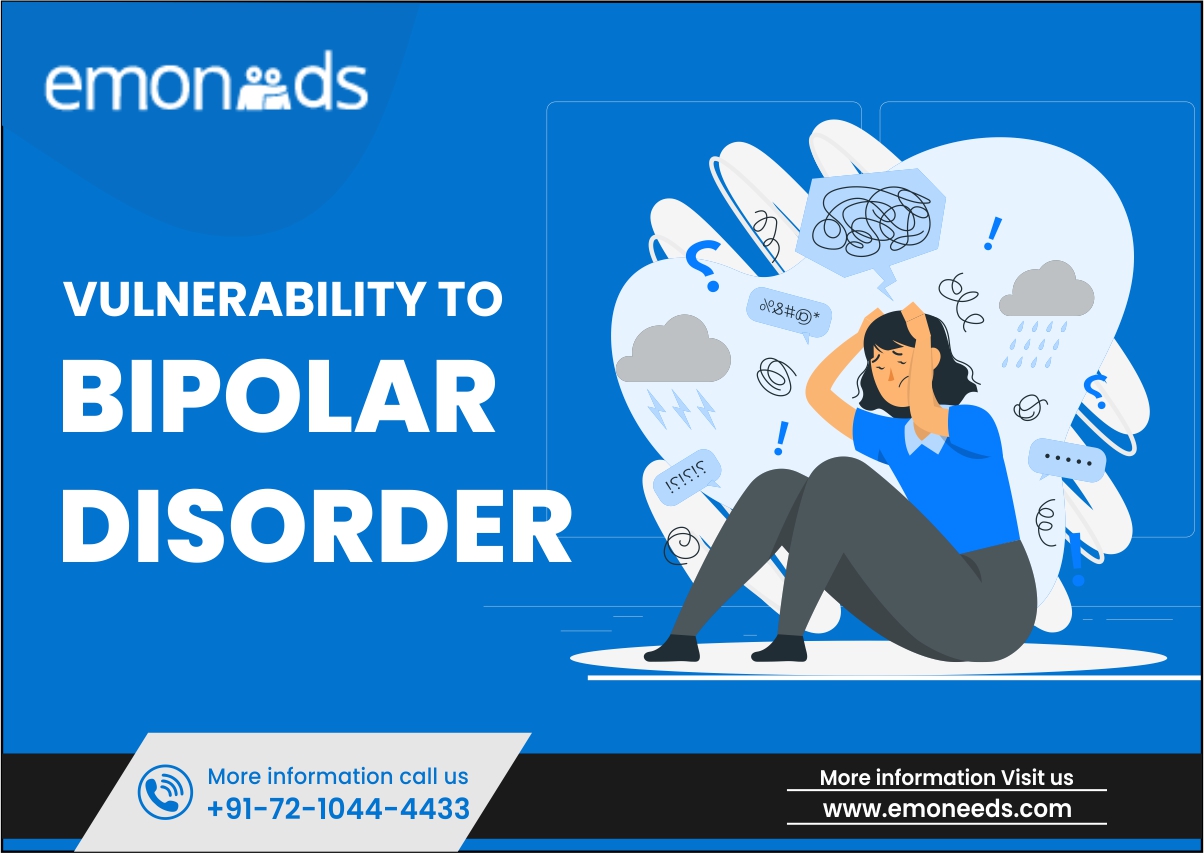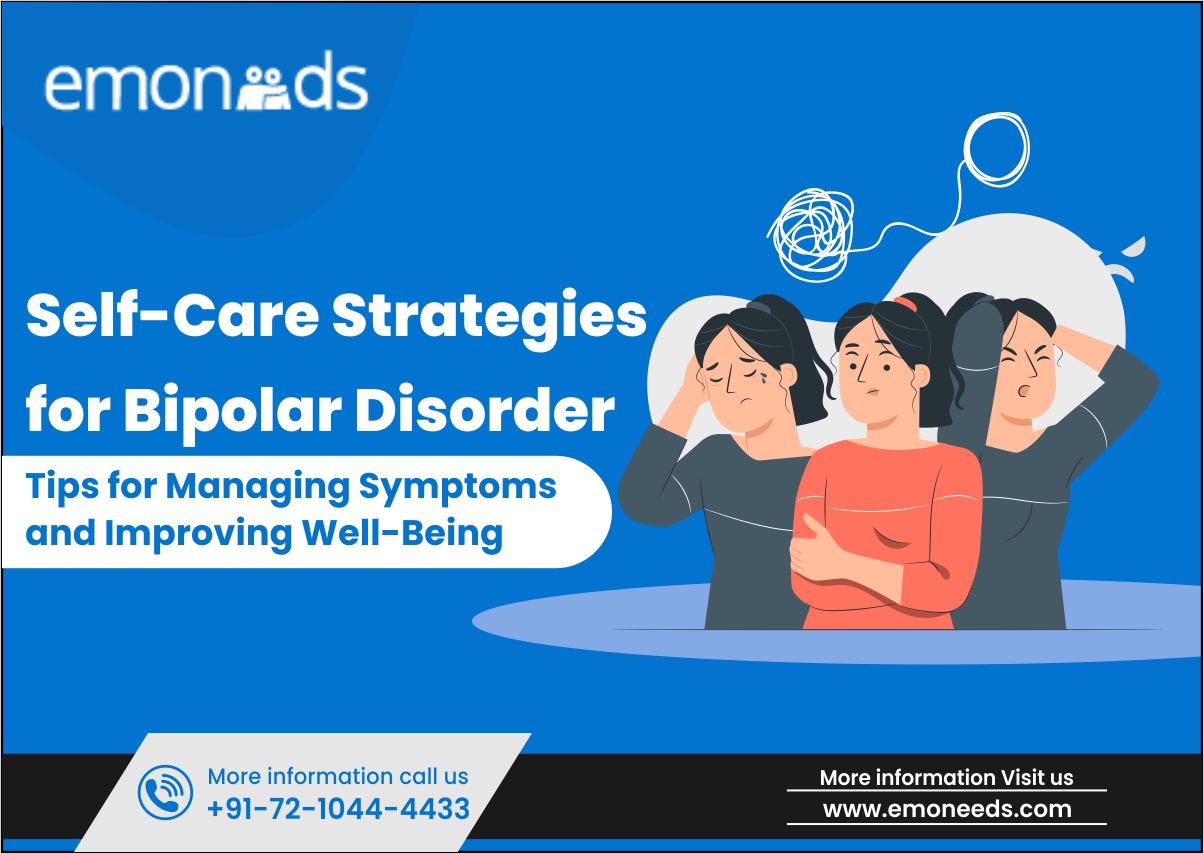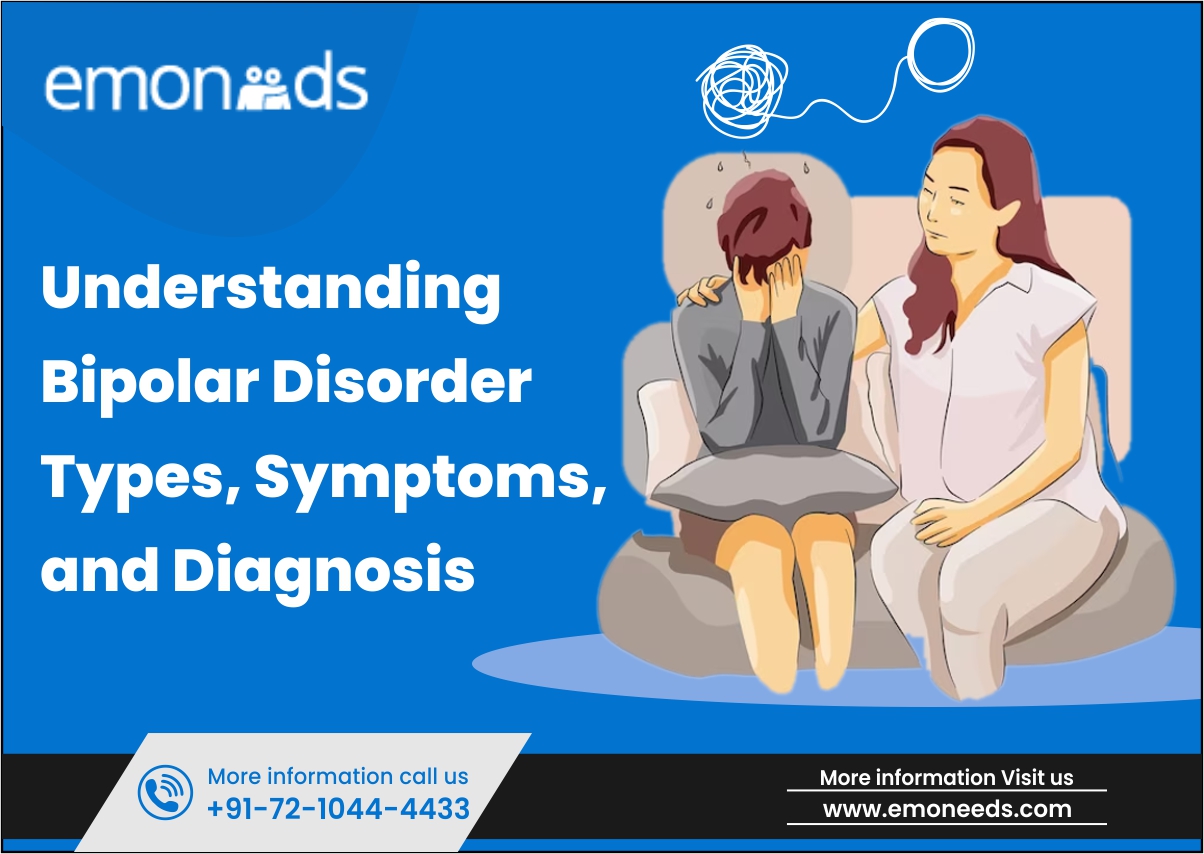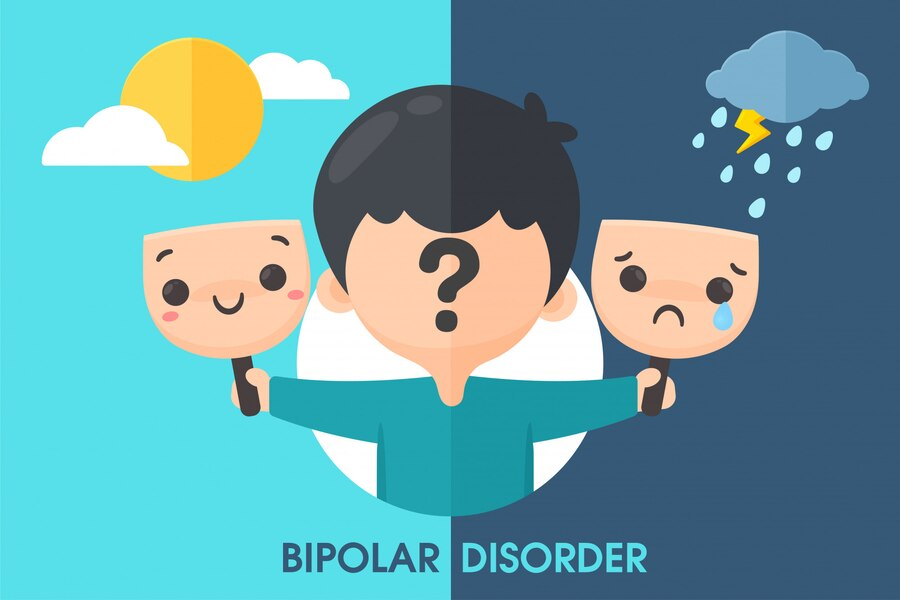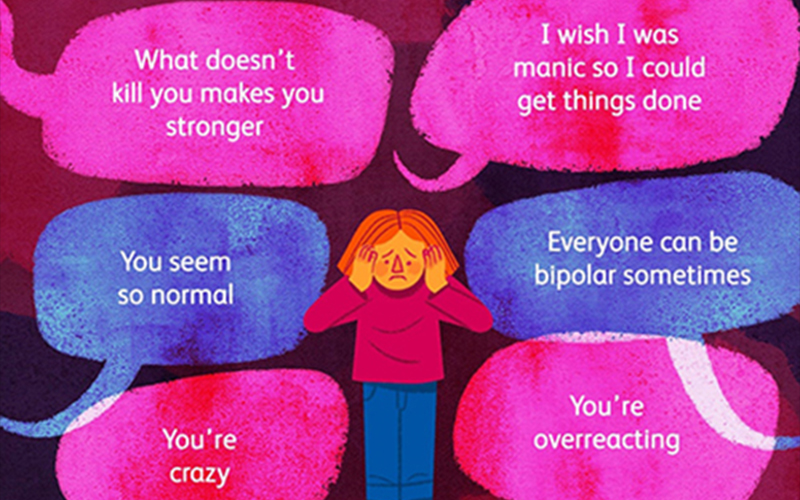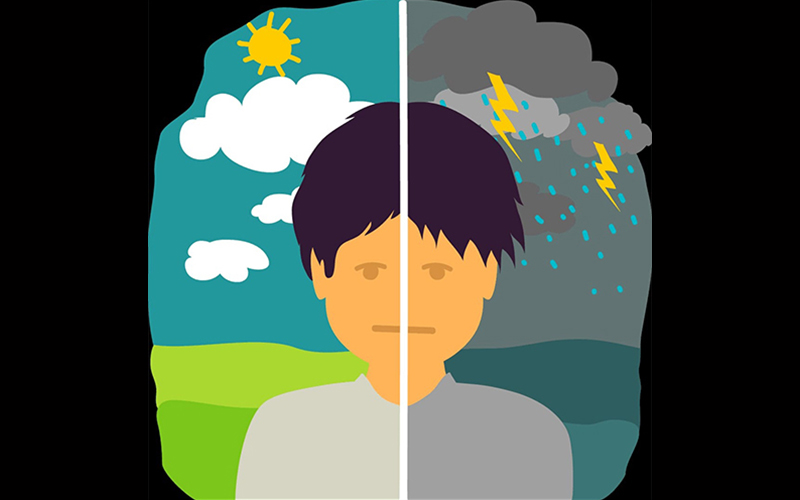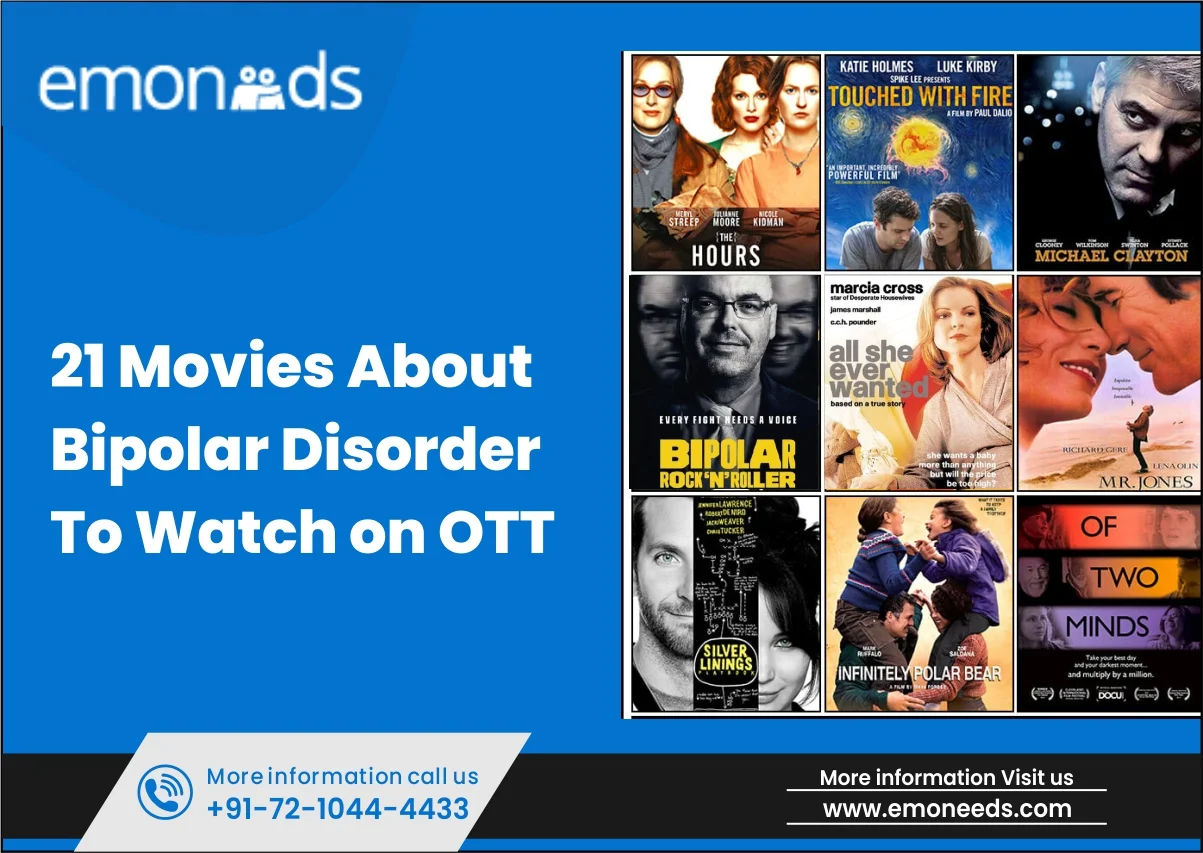
In a world where we’re increasingly discussing mental health, bipolar disorder emerges as a complex web of emotions. It’s a condition defined by intense mood swings, making it a challenge to grasp fully. Despite this maze of mental instabilities, movies step in as powerful storytellers, painting vivid pictures of human circumstances. Here we have listed 21 movies about bipolar disorder which you can watch on OTT.
Emoneeds has a team of expert professional who carry years of experience. To book your bipolar treatment consult us.
Movies hold a unique magic—they illustrate psychological issues, inviting us to empathize with those experiencing conditions like bipolar disorder. They’re more than clinical explanations; they’re sentimental journeys. Skilled filmmakers unravel the struggles, victories, and humanity within the individuals facing mental health challenges.
This blog explores how 21 carefully selected films on OTT platforms authentically depict bipolar disorder, aiming to shed light on genuine struggles, increase comprehension, and spark meaningful conversations about mental wellbeing.
All About Bipolar Disorder
Bipolar disorder is a persistent mental health condition featuring extreme mood swings. Bipolar I involves manic episodes, leading to impulsive behavior, while Bipolar II includes milder hypomanic episodes and severe dejection. Cyclothymic Disorder exhibits frequent mood swings of lesser intensity. Episodes can last days to months. Recognizing its diverse manifestations is crucial for empathy and support in society. Acknowledging the difficulties faced by individuals with bipolar disorder fosters a more compassionate understanding.
Depicting Bipolar Disorder in Cinema
Filmmakers hold a vital role in shaping our perceptions of mental health, especially when portraying conditions like bipolar disorder. Impactful presentations go beyond mere storytelling; they humanize the experiences. These films showcase the resilience and complexities of people living with bipolar disorder, highlighting their strengths and struggles in a relatable manner. However, it’s equally crucial to avoid harmful stereotypes that perpetuate misconceptions.
Responsible narration breaks barriers, debunking myths and encouraging open conversations. When cinema draws a picture of bipolar disorder accurately, it encourages acceptance and support. These movies resonate with audiences, offering a glimpse into the lives of those affected, and cultivating a more compassionate society that values and respects diverse encounters. Filmmakers, through their sensitive and precise portrayals, have the power to educate and instill hope in the hearts of many.
Top Movies about Bipolar Disorder on OTT
| S.No | Movies Name | Ratting | Where To Watch |
| 1 | Silver Linings Playbook | 7.7/10 | Prime Video |
| 2 | Bipolar Rock ‘N’ Roller | 7.6/10 | Prime Video |
| 3 | Michael Clayton | 7.2/10 | Prime Video |
| 4 | Of Two Minds | 6.8/10 | Prime Video |
| 5 | Infinitely Polar Bear | 6.9/10 | Prime Video |
| 6 | The Hours | 7.5/10 | Prime Video |
| 7 | Mr. Jones | 6.9/10 | Prime Video |
| 8 | The Dark Horse | 7.4/10 | Prime Video |
| 9 | Touched with Fire | 6.2/10 | Prime Video |
| 10 | All She Ever Wanted | 6.3/10 | Prime Video |
| 11 | The Informant | 6.5/10 | Prime Video |
| 12 | Mad Love | 6.7/10 | Hotstar |
| 13 | The Skeleton Twins | 6.8/10 | Netflix |
| 14 | Horse Girl | 6/10 | Netflix |
| 15 | The Ghost and the Whale | 4.3/10 | Prime Video |
| 16 | Filth | 7/10 | Prime Video |
| 17 | Manic | 6.1/10 | Prime Video |
| 18 | Repentance | 4.9/10 | Prime Video |
| 19 | Sylvia | 6.3/10 | Prime Video |
| 20 | Crazy/Beautiful | 6.4/10 | Prime Video |
| 21 | Aarohanam | 6.9/10 | Prime Video |
1. Silver Linings Playbook
“Silver Linings Playbook” portrays Pat’s bipolar journey, showcasing his struggle with denial and erratic behavior due to medication avoidance. The film vividly displays manic episodes—rapid speech, impulsivity—and the strain on his family. It uniquely highlights the vital role of support systems amid mental health stigma. Despite challenges, Pat finds love and comprehension from his family, fostering stability. The film’s essence lies in advocating mutual care and acceptance, leading to Pat embracing treatment. It powerfully illustrates that with support, individuals can manage and thrive. A compelling plot, it delves deep into bipolar disorder, reinforcing kindness and acceptance’s transformative strength.
2. Bipolar Rock ‘N’ Roller
The 2018 documentary “Bipolar Rock ‘N’ Roller” follows Mauro Ranallo, a celebrated sports broadcaster renowned in combat sports from a young age. It unveils his lifelong battle with bipolar disorder, detailing his emotional turbulence, anger, and deep melancholy. Despite struggles, Ranallo becomes a mental health advocate, challenging societal stigmas. The film renders resilience, generosity, and the triumph of the human spirit beyond sports. Ranallo’s life isn’t solely about athletics; it’s a profound lesson, offering insight into bipolar disorder through a man who turned vulnerability into strength, urging society to understand the complexities of emotional wellbeing.
3. Michael Clayton
“Michael Clayton” follows fixer Clayton navigating partner Arthur Edens’ bipolar disorder fallout. Edens, defending a poisoning case, stops medication, proclaiming to be “Shiva, the god of death.” Clayton intervenes, addressing Edens’ turmoil and saving the case. The film portrays bipolar disorder’s impact, showcasing disruptions akin to Edens’ manic episodes. It underscores the obstacles faced by sufferers, affecting their lives and those around them. However, the story also stresses that with proper aid and therapy, individuals navigating such episodes can still lead fulfilling lives. “Michael Clayton” offers insight into the intricate interplay of mental illness in personal and professional spheres.
4. Of Two Minds
“Of Two Minds,” a touching documentary by Lisa Klein, intimately explores bipolar disorder through the lens of four characters and their daily encounters. It extends beyond diagnoses, highlighting the complexities of their lives, and involving families and support systems. This film underscores that individuals with bipolar disorder are more than their condition, highlighting diverse relationships and responsibilities. It offers a raw portrayal, showcasing the ongoing journey of managing the disorder, including varied responses to medication and coping mechanisms. Through personal accounts, it urges viewers to see beyond labels, recognizing the resilience and diverse struggles within the bipolar community.
5. Infinitely Polar Bear
“Infinitely Polar Bear” explores a family’s existance with a bipolar father, Cameron (Mark Ruffalo), in the 1970s. His manic phases reveal creativity but strain his family. Challenges with medication and alcohol add complexity. Ruffalo’s portrayal educates about bipolarity, aiding families in similar situations. Yet, the film celebrates Cameron’s commitment to his family, despite his struggles. His dedication as a father and husband showcases love’s transformative power, driving personal growth. Ultimately, it’s a story of hope amid adversity, where love fuels improvement, resonating as a passionate chronicle of family resilience and determination.
6. The Hours
“The Hours” delves into the psychological realms of Virginia Woolf, Laura Brown, and Clarissa Vaughan. It navigates their detachment from normalcy while grappling with sacrifices and existential depths. Beyond mental health, it explores depression, suicide’s impact, and its ripples. Daily rituals—coffee, flowers, and baking—shape the narrative, mirroring the relentless battle against time felt by the depressed. This masterpiece confronts the audience with intense anxiety, capturing the human struggle against inner demons. An intricately woven tale, it’s a visceral reminder of life’s complexities and warrants attention for its profound portrayal of the constant internal battle.
7. Mr. Jones
In the film “Mr. Jones” (1993), Richard Gere renders bipolar disorder’s intense journey. He embodies resistance to medication, torn between manic freedom’s allure and managing the illness. Gere vividly captures rapid mood cycling, from euphoria to devastating depth. The film delves into the complex patient-therapist dynamic, highlighting professional boundaries amid a deep connection. This nuanced relationship adds depth, revealing the hurdles of disorder management and the crucial role of trust in treatment. “Mr. Jones” serves as a genuine portrayal of bipolar disorder I, underlining lifelong management and shedding light on the adversities individuals face with this condition.
8. The Dark Horse
“The Dark Horse,” a 2014 New Zealand film, depicts Genesis Potini’s life, a chess champ battling bipolar disorder. He mentors disadvantaged kids, using chess as a life metaphor. The film renders bipolar disorder correctly: highs spark creativity and passion, followed by crushing lows and instability. It navigates Genesis’s strained relationships and societal challenges. Despite hurdles, Genesis emerges as resilient and inspiring, his brilliance shining amid struggle, showcasing the triumph of the human spirit.
9. Touched with Fire
In “Touched with Fire,” two souls grapple with bipolar disorder, exploring their intense romantic relationship. It vividly depicts their soaring highs of creativity and euphoria contrasted by the depths of despair in depressive episodes. Juggling artistic brilliance with the condition’s complexities becomes their focal challenge, challenging societal norms about psychological state and creativity. The film tenderly showcases its impact on relationships, careers, and self-identity, sparking vital conversations about mental well-being. “Touched with Fire” champions empathy and awareness for those navigating this intricate condition.
10. All She Ever Wanted
“All She Ever Wanted” follows Rachel, battling bipolar disorder’s complexities amid her longing for motherhood. Marcia Cross portrays her emotional path, torn between her desire for a child and the necessity of lithium. Discontinuing medication to conceive raises ethical dilemmas, triggering legal battles and challenging her autonomy. James Marshall’s portrayal of Joe adds depth to their struggle. Intense courtroom scenes and Rachel’s friend Jessie’s advocacy highlight the complexities of love and sacrifice amidst bipolar disorder. The film offers a raw, psychological exploration of managing mental wellbeing while pursuing personal aspirations, shedding light on the difficult choices faced by character like Rachel.
11. The Informant
“The Informant,” starring Matt Damon, depicts the true story of Mark Whitacre, an Archer-Daniels-Midland executive with bipolar disorder. Whitacre, a whistleblower embezzling millions, uses his manic state to aid an FBI investigation, highlighting the intricate link between his actions and his disorder. The film explores his inner workings during a manic episode, revealing the intersection of his bipolarity and the elaborate plan. Despite a clear connection, the court dismisses his diagnosis amidst fraud charges. Post-film, Whitacre’s dedication to reducing mental health stigma adds depth to the intense narrative, providing insight into bipolar disorder within a high-stakes corporate drama.
12. Mad Love
“Mad Love” (1995) explores bipolar disorder through high school students Casey and Matt. Casey’s intense personality leads to a tumultuous journey as Matt tries to assist her, resulting in a trip to Mexico. Despite his selfless efforts, Casey’s erratic behavior challenges their relationship, leading to her re-admittance to a psychiatric hospital in Seattle. The film showcases the issues faced by patients and their loved ones. It highlights the often overwhelming nature of helping someone through such turbulent mental landscapes.
13. The Skeleton Twins
“The Skeleton Twins” (2014) renders bipolar disorder through the characters of Milo (played by Bill Hader) and Maggie (played by Kristen Wiig). Milo, dealing with depression, attempts suicide, prompting his sister Maggie, also battling her own emotional struggles, to invite him to stay with her. Throughout the film, Milo’s mood swings, impulsivity, and the depth of his overwhelming despair are depicted, while Maggie grapples with her own difficulties. Their complex relationship serves as a lens to explore the impact of psychological issues on familial bonds, capturing the rawness and unpredictability of living with bipolar disorder and offering a heartfelt yet candid portrayal.
14. Horse Girl
“Horse Girl” from 2020 is this intriguing movie that dives into mental health, particularly bipolar disorder. The character, Sarah, has wild dreams, sleepwalking adventures, and mood swings that play hopscotch with reality. The film blurs the line between what’s real and what’s in Sarah’s head, mirroring the rollercoaster ride of bipolar disorder. She’s all over the place, connecting with supernatural stuff, and taking deep dives into her own thoughts. It’s this tangled mix of supernatural and personal struggles that paints a really unique picture of bipolar disorder, giving us a peek into Sarah’s emotional rollercoaster.
15. The Ghost and the Whale
“The Ghost and the Whale” is a 2016 mystery drama where bipolar disorder plays a central role. The film follows a man named Joseph, played by Maurice Benard, who grapples with bipolar disorder while haunted by the unsolved murder of his wife, played by Tippi Hedren. Joseph’s mental health struggles intersect with his quest for truth, blurring reality and haunting visions. The movie delves into how his condition affects his perceptions and interactions, painting an agonizing picture of the obstacles faced by individuals dealing with bipolar disorder while navigating the complexities of unresolved trauma and grief.
16. Filth
In the film “Filth,” James McAvoy illustrates Bruce Robertson, a corrupt and manipulative detective struggling with bipolar disorder. Bruce’s character embodies the extreme states of the condition, showcasing impulsive behavior, intense mood swings, and moments of both euphoria and deep depression. His unraveling mental state drives the plot, blurring reality and hallucination, making it challenging to discern what’s genuine from what’s distorted by his disorder. Through McAvoy’s gripping performance, the film delves into the complexity of bipolar disorder, illustrating its impact on personal relationships, professional life, and the internal turmoil faced by those grappling with this challenging condition.
17. Manic
“Manic” (2001) delves into bipolar disorder through its protagonist, Lyle, portrayed by Joseph Gordon-Levitt. The film offers a raw and unfiltered portrayal of a group of troubled teenagers in a psychiatric hospital, with Lyle exhibiting symptoms of intense mood swings, impulsivity, and emotional turbulence characteristic of bipolar disorder. His unpredictable behavior, marked by manic highs and intense melancholy, showcases the hurdles of navigating life with this condition. Through Lyle’s tale, “Manic” highlights the complexities of mental health, emphasizing the need for knowledge, support, and empathy for those grappling with bipolar disorder.
18. Repentance
In the movie “Repentance,” bipolar disorder is portrayed through the character of Tommy Carter, a troubled artist. The film explores Tommy’s struggle with this condition, depicting his episodes of manic highs and deep despondancy. His erratic behavior, intense creative spurts, and moments of deep despair illustrate the rollercoaster nature of bipolar disorder. As the story unfolds, Tommy’s bipolar disorder becomes a significant element shaping his relationships and decisions, highlighting the complexities and issues faced by individuals dealing with this condition. The movie offers a dramatic portrayal of the impact bipolar disorder can have on a person’s life and those around them.
19. Sylvia
“Sylvia” (2003) explores the life of poet Sylvia Plath, depicting her struggles with mental health, likely representing aspects of bipolar disorder. The film delves into Plath’s intense emotional highs and profound sadness, capturing her moments of creative brilliance juxtaposed with deep depressive episodes. Through intimate portrayals of her tumultuous relationships and artistic fervor, “Sylvia” offers a glimpse into the complex interplay between Plath’s genius and the inner turmoil associated with bipolar disorder, shedding light on the challenges faced by individuals grappling with the condition amidst their pursuit of creativity and self-expression.
20. Crazy/Beautiful
In the movie “Crazy/Beautiful,” the character Nicole suffers from undiagnosed bipolar disorder. Her erratic behavior, impulsiveness, and extreme mood swings are evident throughout the film. Nicole’s struggles stem from her tumultuous family life and the pressure to meet her father’s expectations. Her intense emotions lead her to engage in risky behaviors, impacting her relationship with Carlos, a more stable influence in her life. The film illustrates the challenges of living with undiagnosed mental illness, highlighting the importance of understanding and support for individuals grappling with bipolar disorder amid personal and societal pressures.
21. Aarohanam
“Aarohanam,” a Tamil film, delicately explores bipolar disorder. The story follows a mother living with the condition, emphasizing her struggles and the impact on her family. The film captures the complexities of her life, portraying the highs and lows she experiences. It sheds light on societal perceptions, stigmas, and the family’s efforts to support her while dealing with their own emotions. “Aarohanam” beautifully navigates the nuances of bipolar disorder, advocating for empathy, understanding, and acceptance. Through poignant performances and a sensitive story, the movie fosters awareness and compassion toward mental health challenges within the Indian context.
The Importance of Representation
Accurate representation in cinema validates diverse human experiences, especially when portraying characters with bipolar disorder. It provides reassurance, acknowledging and validating the lived feelings of those who identify with such stories.
Cinema acts as a bridge, connecting audiences with unfamiliar chronicles, fostering understanding. By precisely depicting bipolar disorder, movies amplify voices, offering visibility to a spectrum of experiences. This inclusivity cultivates a world where every individual’s story is seen, heard, and respected, fostering a deeper appreciation for the richness of human diversity on screen.
Recommendations for Viewing
For viewers sensitive to themes around bipolar disorder, consider these suggestions:
- Content Advisory: Some films depict intense feelings, erratic behavior, and challenging situations related to bipolar disorder. Viewer discretion is advised.
- Watch with Support: View these movies with friends or family to facilitate discussions and psychological support.
- Take Breaks: Pause the movie if it becomes overwhelming and take breaks to process strong feelings.
- Further Awareness: Seek resources like mental health websites, books, or community groups for deeper insights into bipolar disorder.
Conclusion
Movies have proven to be a powerful medium in shedding light on the complexities of mental wellbeing, including bipolar disorder. They’ve provided a lens through which audiences can better understand and empathize with those facing such disorders.
These cinematic narratives not only entertain but also foster kindness. Continued dialogue for undisputed representations in media is crucial. As we appreciate the cinematic representations, let’s also ensure we seek accurate information and help for those dealing with bipolar disorder.
For comprehensive mental health care and guidance, consider Emoneeds. Take a step towards holistic well-being – reach out to Emoneeds and be part of a community dedicated to mental health and compassionate care.
